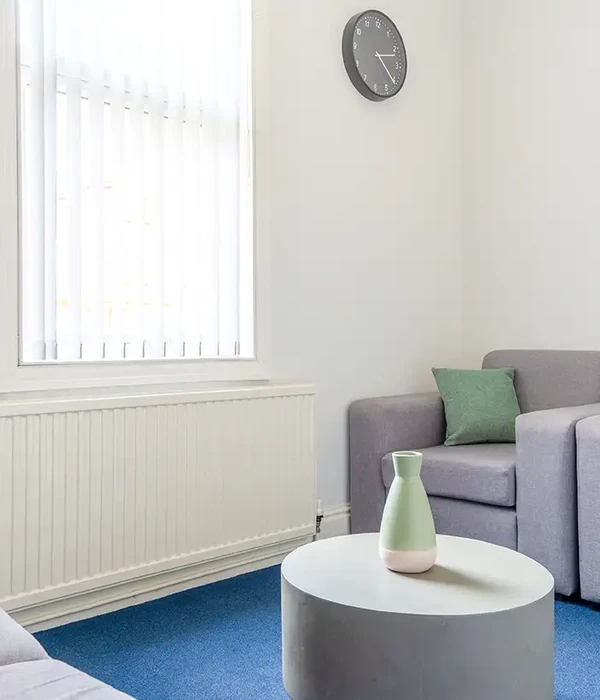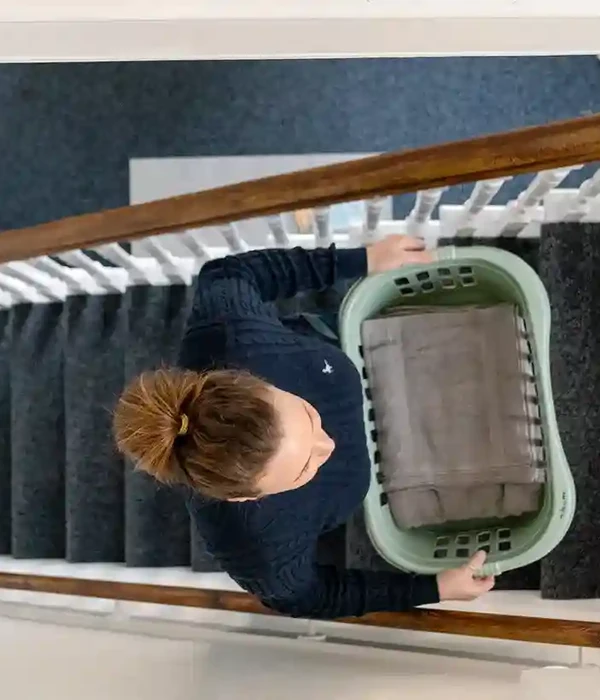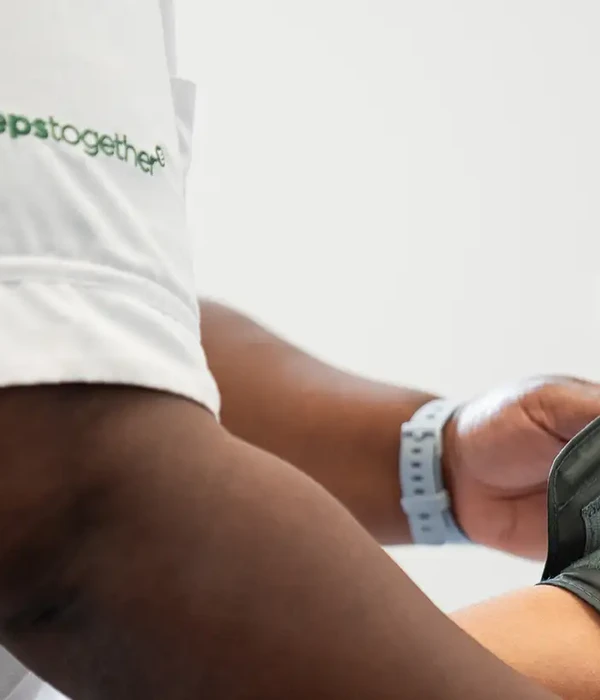Aftercare
Aftercare Treatment at Steps Together
At Steps Together, we understand that recovery does not end when treatment finishes. Aftercare is a vital part of maintaining long-term sobriety and emotional wellbeing.
Our aftercare programme is designed to provide continued support, guidance, and therapy for individuals and their families as they transition back into everyday life.
Our aftercare programmes focus on helping clients strengthen the coping strategies they have learned in treatment, prevent relapse, and build meaningful, healthy lives. With a blend of counselling, therapy, and family support, we ensure every individual and their loved ones feel supported long after leaving our centres.

Take the First Step Towards Recovery
Steps Together offers personalised support and proven treatments, providing the care, guidance and encouragement you need to move forward with confidence and build a healthier future.

Counselling in Aftercare
Through continued counselling, individuals are able to strengthen the motivation and resilience that were built during treatment. These sessions also offer guidance on managing cravings, dealing with anxiety or depression, and applying practical coping techniques in real-life situations.
Staying connected enables clients to be better prepared to navigate the ups and downs of early recovery and remain firmly on the path to lasting change.
Individual Therapy Sessions
Aftercare also includes personalised one-to-one therapy sessions that give clients the opportunity to focus on their unique needs. These sessions provide the chance to work closely with a therapist to deepen self-awareness, explore ongoing challenges, and strengthen the skills needed for long-term success.
Many clients use individual therapy to reflect on personal goals, understand the underlying issues that may have contributed to their addiction, and develop strategies to prevent relapse. It is a space to work through emotions in greater depth, whether those involve trauma, grief, or mental health concerns, while also building confidence in moving forward.
This tailored approach ensures that recovery continues to progress, helping individuals not only to remain free from substances but also to create a healthier, more fulfilling life.


Family Therapy
Addiction affects the whole family, and recovery is often most successful when loved ones are included in the process. Family therapy plays a crucial role in helping relatives rebuild relationships, improve communication, and heal from the impact that addiction has had on their lives.
At Steps Together, our family therapy sessions create a supportive environment where everyone has the opportunity to speak openly and honestly. These sessions help families to gain a clearer understanding of addiction as an illness, rather than a personal failing, and to learn healthier ways of supporting their loved one in recovery.
Over time, family therapy can restore trust, repair damaged bonds, and build stronger foundations for the future. This process not only benefits the individual in recovery but also allows the entire family unit to move forward together with renewed hope and resilience.
Outpatient Treatment as Aftercare
At Steps Together, we understand that recovery is a long-term process. For many clients, continuing support through outpatient treatment offers the flexibility to balance everyday responsibilities with ongoing care. Outpatient services form a vital part of aftercare, giving individuals access to professional guidance, therapeutic support, and structured programmes without the need for residential stays. This approach helps maintain accountability, prevent relapse, and build confidence in everyday recovery.
Building Healthier Relationships
Addiction often places strain on personal connections, making relationships one of the most important areas of focus during recovery. Our relationship counselling services within outpatient treatment help clients develop healthier communication, rebuild trust, and strengthen bonds with loved ones. Addressing challenges within relationships also helps individuals equip patients to create supportive environments that foster long-term recovery.
Accessible Online Counselling
We recognise that attending in-person sessions is not always possible, which is why we provide flexible options through online counselling for addiction recovery. These sessions offer the same high-quality support as face-to-face therapy but with the added convenience of accessing help from home. Online counselling makes it easier to stay connected, manage commitments, and maintain progress in recovery no matter where you are.
Grief and Loss Support
Many people entering recovery also carry the weight of past grief and loss. Left unaddressed, these emotions can become significant triggers for relapse. Through our dedicated grief counselling programmes, clients receive compassionate support to process loss in a safe and structured way. This therapeutic space allows individuals to acknowledge their grief, find healthier coping mechanisms, and continue moving forward in recovery with strength and resilience.
Outpatient Mental Health Support
Mental health is closely linked to addiction recovery, and addressing both together is essential for long-term success. Our specialised outpatient mental health services provide clients with professional therapy and support to manage conditions such as anxiety, depression, or trauma. By treating mental health alongside addiction, we give clients the tools to build resilience, restore balance, and move forward with confidence in their recovery.
Services That Our multi-speciality Addiction Rehabilitation Centres Offer

Aftercare for Mental Health Conditions
Recovery is not just about overcoming addiction — it also involves addressing underlying mental health challenges that often play a role in substance use. At Steps Together, our aftercare programme includes dedicated support for a range of mental health conditions, ensuring clients have the tools to manage symptoms and maintain stability in everyday life.
By combining therapeutic care with ongoing guidance, we help individuals strengthen their recovery and build long-term emotional wellbeing. Our approach makes sure that clients are supported both in their sobriety and in their mental health, laying a strong foundation for lasting change.
Managing Anxiety in Recovery
Anxiety can make the transition back into daily life feel overwhelming, especially in the early stages of recovery when new routines and responsibilities must be managed. Through our specialised aftercare treatment for anxiety, clients are given the opportunity to explore the root causes of their anxious thoughts and develop healthier ways of coping.
Our therapists provide practical tools such as relaxation techniques, stress management strategies, and personalised support plans to help reduce the intensity of symptoms. Over time, clients gain confidence in managing anxiety without relying on substances, creating a stronger foundation for lasting recovery.

Aftercare Services for Eating Disorders
Eating disorder treatment is a long-term process that continues well beyond initial recovery. At Steps Together, our aftercare services are designed to provide ongoing support, helping clients manage triggers, maintain healthier habits, and build confidence as they return to everyday life.
Recovering from anorexia requires ongoing support long after initial treatment has ended. Our dedicated aftercare programmes for anorexia focus on helping clients maintain healthy eating patterns, manage body image concerns, and build resilience as they return to everyday life.
With continued therapeutic guidance, clients learn to recognise and challenge negative thought patterns while developing positive coping strategies. This ongoing care helps reduce the risk of relapse and provides a safe space to continue healing both physically and emotionally.
Bulimia recovery can be especially challenging during aftercare, as clients adjust to daily routines where old triggers may reappear. At Steps Together, our aftercare support for bulimia provides structured therapy and guidance to help clients sustain progress made in treatment.
Sessions focus on strengthening coping mechanisms, restoring healthy self-esteem, and preventing cycles of bingeing and purging from resurfacing. Continued support ensures clients remain motivated, accountable, and confident in their long-term recovery.
Binge eating disorder often requires extended support to address the emotional and behavioural challenges that can continue after treatment. Our aftercare programmes for binge eating provide clients with the tools to manage urges, build a balanced relationship with food, and prevent relapse.
Through ongoing therapy and guidance, clients are encouraged to work on self-acceptance, stress management, and healthy lifestyle changes. This continued support creates a stronger foundation for long-term recovery and improved wellbeing.
Creating an Effective Aftercare Plan
A strong aftercare plan gives you the tools needed to stay on track after treatment finishes. It is shaped to meet your specific needs, involves support from trained professionals, and relies on help from family or friends.
Personalised Aftercare Plans
Personalisation is key to making your aftercare plan work. Your needs, triggers, health, and living situation are not the same as everyone else’s, so your plan should be tailored. Common parts might include routine check-ins, regular therapy, setting goals, or building coping skills.
A good plan aims to prevent relapse and helps you adjust to life without substance use. It should be flexible, changing as your life changes. Setting clear steps and timelines can also help you measure your growth.
Family and Social Support Systems
Support from others can make a huge difference. Family, friends, and peer support groups offer encouragement and reduce feelings of isolation during recovery. You might attend meetings or group sessions to share experiences and learn coping strategies.
Open communication with your support system helps avoid misunderstandings. Let your loved ones know your goals and what kind of support you need. Sometimes, family education is helpful so they understand addiction and aftercare.
Collaborating with Professionals
Working with counsellors, therapists, or doctors makes your plan stronger. These professionals help you set realistic goals and prepare for challenges. You may also work with social workers or case managers who guide you through community resources.
Health workers can help spot warning signs of relapse and provide therapy as needed. Many treatment centres build the first version of your plan with you before you leave. Together, you focus on issues like mental health, coping skills, or educational support.

Aftercare Is Essential in a Treatment Plan
Rehab is a crucial step in the recovery journey, but long-term change requires continued support beyond primary treatment. Aftercare can play an important role in helping you stay sober and navigate life after addiction.
At Steps Together, we offer comprehensive aftercare support, including advice, ongoing therapy, and access to recovery resources. Our goal is to help you maintain progress, manage the challenges you face, and build a strong, sustainable foundation for long-term sobriety.
Frequently Asked Questions
What is aftercare treatment?
Aftercare treatment refers to the support and services you get once your main treatment, like for addiction or illness, has finished. It can involve check-ups, counselling, peer groups, and help with daily life. The main goal is to reduce the risk of setbacks and to help you adjust to living outside a treatment setting.
How can aftercare contribute to addiction recovery?
Aftercare strengthens what you learned during rehab by helping you handle daily temptations and stress. It also reduces your risk of relapsing because you have access to professionals, peer support, and clear guidance. Regular check-ins and treatment updates keep your recovery plan up to date and useful.
In what ways does aftercare benefit those recovering from addiction?
Aftercare gives you access to support networks, personal guidance, and resources that keep your motivation high. This constant support can reduce isolation and catch problems early.
What are the essential components of aftercare following a rehab treatment?
Key parts of aftercare after rehab include regular meetings with support groups, ongoing therapy sessions, and contact with a case manager. You may get help finding employment, managing medication, and handling stress. Programmes often make plans that are specific to your needs so you can build healthy routines.
What are some exemplary aftercare practices commonly recommended by professionals?
Professionals suggest regular therapy, participation in group meetings, and having a personalised plan. Many also recommend lifestyle changes such as improving sleep, avoiding triggers, and seeking constructive hobbies. Staying connected to your support team and using coping strategies are also very important steps in a successful aftercare plan.





